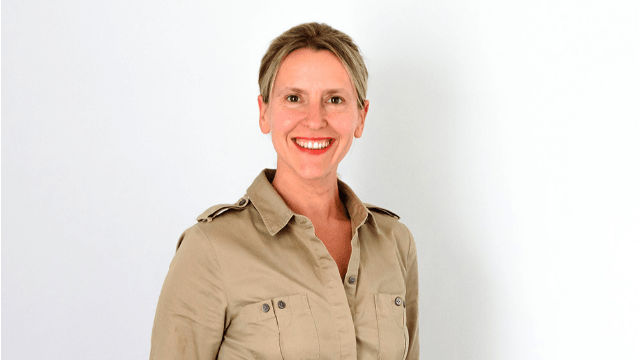Clémentine Baldon (E99), a Lawyer in the Affaire du Siècle: “Climate Justice Is Only Just Beginning”
Clémentine Baldon (E99), a lawyer, is representing Fondation Nicolas Hulot (FNH) in the Affaire du Siècle (Case of the Century), which may mark a decisive turning point in making national governments take responsibility for the climate emergency. Here’s how.
ESSEC Alumni: How did you come to represent the Fondation Nicolas Hulot (FNH) in the “Case of the Century”?
Clémentine Baldon: My collaboration with FNH dates back to 2017. At the time, I was working as a legal executive at Bouygues Telecom. However, I was aware of climate change and did some pro bono work for FNH carrying out legal analysis of the CETA trade agreement between the EU and Canada. We developed a relationship based on trust, and when I started my own legal firm, I kept supporting FNH on a range of matters: European law, WTO law, the EGALIM act and... the Case of the Century.
EA: So what is the “Case of the Century”?
C. Baldon: It is a legal action launched in late 2018 and brought before the French administrative judge by four NGOs (FNH, Greenpeace, Oxfam, and Notre Affaire à Tous) with two main objectives: to acknowledge the State’s liability for the consequences of its failure to act against climate change, and to oblige it to act.
EA: Beyond the legal proceedings, what are the main challenges in this case?
C. Baldon: Firstly, there’s the matter of citizen engagement: the online petition received more than 2 million signatures, an all-time record for France. This made the Case of the Century a powerful engagement tool with political leverage. Then there’s the challenge of disseminating the challenges of climate change within the legal world, and the ruling on 3 February showed that the administrative judge now fully grasped these challenges, even with a certain audacity.
EA: What was the ruling of 3 February? What are its repercussions?
C. Baldon: The ruling acknowledged that the State had failed to uphold its commitments to the climate, and as such was in part responsible for worsening climate change. It’s a first, and all the more remarkable because so many subjects had to be legally debated. Now a second phase begins: in a few months, following another exchange between the parties, the administrative court may order the government to adopt new measures to repair the damage caused by its failings, and never to repeat them.
EA: We are seeing a broad movement towards bringing climate challenges before the courts. Why is that?
C. Baldon: Faced with the existential threat of global warming, there is now an urgency to take action, and to do so this decade. Civil society’s aim is a simple one: to obtain concrete results. This begins by obliging States to adhere to the commitments made in the Paris Accord. To that end, and from an efficiency standpoint, civil society is using all of the tools at its disposal. And so, legal action is picking up some of the slack, alongside political initiatives and other efforts.
EA: How is this movement progressing in France?
C. Baldon: In France, climate justice as a way to change government policy is still in its infancy. In parallel to the Case of the Century, the French Council of State is due to make an important ruling in a similar case, the “Commune de Grande Synthe”, in which the NGOs and the Case of the Century are also parties.
EA: And internationally? Are there any other high-stakes legal challenges in progress? If so, what are the important milestones to watch out for?
C. Baldon: The cases mentioned above form part of an international movement, inspired in particular by the “Urgenda” case in 2019, when Dutch judges in the Supreme Court forced the Dutch government to boost its greenhouse gas reduction targets. Similar cases have been launched throughout Europe (Ireland, Germany, the United Kingdom, Belgium, Spain, etc.). More recently, six young people from Portugal challenged the European Court of Human Rights to acknowledge that the failure of 33 states (including France) to meet their commitments made under the Paris Accord constituted a violation of their human rights.
EA: What is the outlook for bringing climate change issues to court in the future?
C. Baldon: The international movement for “climate cases” seems to be swelling, as the impact of climate change becomes increasingly obvious. These cases should be followed closely, because the additional pressure they apply to national governments could be a powerful vector for change. I hope so anyway!
Interview by Louis Armengaud Wurmser (E10), ESSEC Alumni Content Manager
Did you like this article? So that we can continue to offer you content about ESSEC and its news, join ESSEC Alumni!

Comments0
Please log in to see or add a comment
Suggested Articles


